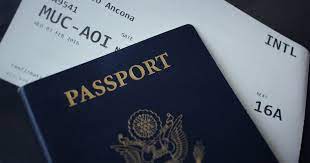Travel is easing throughout Africa, with visa restrictions at their lowest level since 2016, as about 93% of countries across the continent have maintained or risen in the Africa Visa Openness Index (AVOI) this year, according to the African Development Bank’s (AfDB) annual AVOI Index.
The AVOI, produced in collaboration with the African Union Commission, confirmed that two-thirds of African nations introduced less restrictive visa requirements compared to six years ago. The Index, published every year since 2016, measures the level of restrictions for citizens from other African nations to visit each country in the continent. The report considers the number of visa requirements each nation holds, including which nationalities need a visa to enter, which do not, and which may gain a visa upon entry. This year marked a return to pre-pandemic norms, with the report noting Africa’s AVOI aggregate score had exceeded its pre-pandemic level as the continent opened and economies welcomed the influx of fresh business, tourism and investment opportunities.
“The increase in travel is driven in large part by pent-up personal demand, but also by the realization that many businesses depend on human movement, and that investment thrives on it,” wrote Marie-Laure Akin-Olugbade, AfDB’s Vice President for regional development, integration and business delivery. Significant barriers have been lowered in the years since 2016, with 27% of all Africans conducting intra-Africa travel able to travel without a visa, rising from 20% in 2016.
One factor credited for lowered trade barriers was the rising popularity of e-visas, with 24 nations offering an e-visa in Africa over 2022 compared to 21 in 2019 and nine countries in 2016. The emerging trend of liberalized travel policies has also been advocated for by the African Union, as further steps are taken to secure freedom of movement under the African Continental Free Trade Area (AfCFTA).
